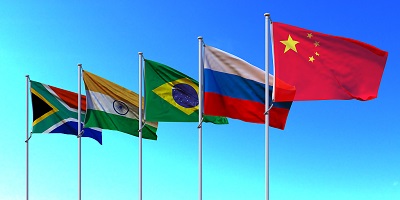Ulyanovsk, (Samajweekly) Movies, music, documentaries, and languages are tools of ‘soft power’, and in the ongoing International BRICS Youth Camp in Russia’s Ulyanovsk, delegates emphasised harnessing these soft powers.
As many as 60 delegates from five BRICS countries — Brazil, Russia, India, China, and South Africa — are participating in the summit. Of them, 10 are from India. All participants are aged between 18 and 35 years.
Daria Ivankova, Director of the TV BRICS International Cooperation Department, spoke about TV BRICS at the summit. “TV BRICS is all about building and promoting a positive and peaceful image of each country using local news and other types of media content. We are not focused on difference, but we are about cooperation and things we all have in common.”
Soft power refers to the ability to achieve goals by attraction through political, moral or cultural influence, by subtle economic means.
“Our music and movies can give each other a better understanding of our culture and rich heritage. To bring our diversity on one platform, we have TV BRICS and we want to incorporate more countries, more local languages and more content to it. Not just this, TV BRICS also have the latest updates of all BRICS countries for better awareness,” she added.
During the summit, a screening of Dostoevsky Intercontinental –- a documentary on the work and life of popular Russian author Fyodor Dostoevsky — was organised.
All five BRICS countries came together to make this documentary. The documentary production partners included CGTN-RUS (China Global Television Network); Grupo Bandeirantes De Comunicacao (Brazil); MOJA MEDIA holding (South Africa); Malai Murasu TV Regional Television Company (India) and Russian Centre of Science and Culture in Chennai (India); and Prodvizhenie TV channel (Russia).









